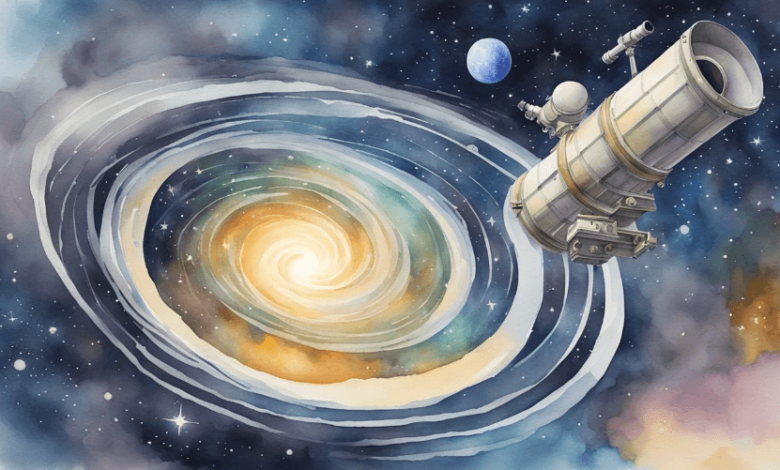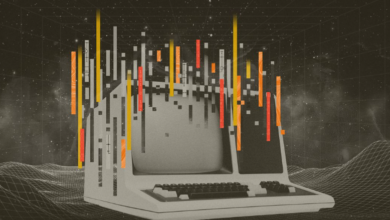Unveiling the Cosmos: Breakthroughs in Space Exploration

The cosmos, vast and mysterious, has captivated humanity for centuries. Our pursuit of knowledge has driven technological and scientific advancements, leading to unprecedented breakthroughs in space exploration. From probing the depths of our solar system to uncovering the secrets of distant galaxies, these developments are redefining our understanding of the universe and our place within it. This article explores the most significant achievements in space exploration and how they continue to shape our future.
The Evolution of Space Exploration
Space exploration began with the launch of Sputnik 1 in 1957, marking humanity’s first step beyond Earth’s atmosphere. Over the decades, our capabilities expanded from crewed lunar missions to robotic explorations of Mars and beyond.
Key Milestones in Space Exploration
- 1969: Apollo 11’s moon landing, with Neil Armstrong becoming the first human to step on the lunar surface.
- 1977: Launch of the Voyager probes, now traversing interstellar space.
- 1998: Construction of the International Space Station (ISS), fostering global collaboration in space.
- 2021–Present: Private companies like SpaceX and Blue Origin revolutionizing space travel.
The evolution of space exploration has been driven by a mix of governmental efforts, international partnerships, and private-sector innovation.
Technological Breakthroughs Powering Exploration
Modern space exploration relies on cutting-edge technology to overcome the immense challenges of space travel.
Advanced Propulsion Systems
Ion thrusters and nuclear-powered engines are enabling faster, more efficient missions to distant destinations.
Autonomous Spacecraft
AI-driven robotics, such as NASA’s Perseverance rover, are conducting complex tasks without human intervention.
Space Telescopes
Telescopes like the James Webb Space Telescope (JWST) are providing unprecedented views of the universe, from exoplanet atmospheres to the earliest galaxies.
Exploring Our Solar System
Our solar system remains a focal point for exploration, with missions targeting planets, moons, and even asteroids.
Mars Missions
Mars has been a prime target for decades, with recent missions offering groundbreaking discoveries. NASA’s Perseverance rover is searching for signs of ancient microbial life and collecting samples for future return. The Ingenuity helicopter achieved the first powered flight on another planet, showcasing new possibilities for exploration.
Lunar Exploration
The moon is experiencing a renaissance in exploration. NASA’s Artemis program aims to establish a sustainable human presence on the moon by the late 2020s. International efforts, such as China’s Chang’e missions, are exploring the lunar far side and harvesting resources.
Asteroid Mining and Defense
Missions like OSIRIS-REx and Japan’s Hayabusa2 have successfully collected asteroid samples, advancing our understanding of these celestial bodies and their potential as resource hubs.
The Search for Extraterrestrial Life
One of the most tantalizing goals of space exploration is discovering extraterrestrial life.
Exoplanet Exploration
The search for habitable worlds has intensified. The Kepler and TESS missions have identified thousands of exoplanets, some within the habitable zone of their stars. The JWST is now analyzing these planets’ atmospheres for biosignatures like water vapor and methane.
Europa and Enceladus
Moons like Europa (Jupiter) and Enceladus (Saturn) are prime candidates for harboring life due to their subsurface oceans. Upcoming missions, such as NASA’s Europa Clipper, will probe these icy worlds.
Private Sector Contributions
The privatization of space exploration has ushered in a new era of innovation and accessibility.
Space Tourism
Companies like SpaceX, Blue Origin, and Virgin Galactic are making space travel accessible to civilians, heralding a new age of space tourism.
Reusable Rockets
SpaceX’s Falcon 9 and Starship systems are dramatically reducing the cost of space missions by reusing rocket components.
Lunar and Martian Bases
Private companies are collaborating with governments to establish sustainable outposts on the moon and Mars, paving the way for long-term colonization.
Space Exploration and Sustainability
As we reach for the stars, sustainability remains a critical consideration.
Space Debris Management
Efforts are underway to address the growing problem of orbital debris, with projects like satellite recycling and cleanup missions.
Green Propulsion
Eco-friendly propulsion technologies are being developed to minimize the environmental impact of space travel.
Impact on Everyday Life
The technologies and discoveries stemming from space exploration have profound impacts on Earth.
Technological Innovations
GPS and satellite communication are essential for navigation, weather forecasting, and global connectivity. Medical advances from space research have led to breakthroughs in robotics, telemedicine, and materials science.
Inspiring Generations
Space exploration fuels curiosity and inspires future scientists, engineers, and dreamers.
The Future of Space Exploration
Looking ahead, the possibilities for space exploration are limitless.
Interstellar Exploration
Projects like Breakthrough Starshot aim to send probes to the nearest star systems within decades.
Human Missions to Mars
NASA and SpaceX are leading efforts to land humans on Mars by the 2030s.
Exploring Beyond
Missions to outer planets like Uranus and Neptune are under consideration, promising new insights into our solar system’s outer reaches.
Conclusion
Space exploration represents humanity’s insatiable desire to understand the cosmos. Each breakthrough brings us closer to unraveling the universe’s mysteries while advancing technology, fostering international collaboration, and inspiring future generations. As we unveil the cosmos, the journey itself becomes as important as the discoveries, illuminating the infinite potential of human ingenuity.
FAQs
1. What are the latest advancements in space exploration?
Recent advancements include the James Webb Space Telescope, Mars missions like Perseverance and Ingenuity, and reusable rockets by SpaceX.
2. Why is space exploration important?
It drives technological innovation, deepens our understanding of the universe, and inspires future generations.
3. How do private companies contribute to space exploration?
Private companies are revolutionizing space travel with innovations like reusable rockets, space tourism, and plans for lunar and Martian bases.
4. What is the focus of current Mars missions?
Current missions aim to search for signs of past life, collect soil samples, and prepare for future human exploration.
5. Are there any efforts to combat space debris?
Yes, projects are underway to recycle satellites, track debris, and develop technologies for space cleanup.
6. What’s next for space exploration?
Future goals include human missions to Mars, interstellar exploration, and deeper studies of distant galaxies and exoplanets.




